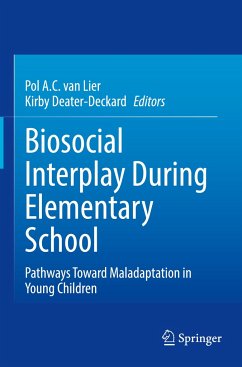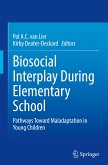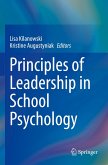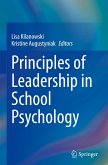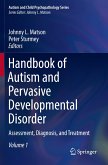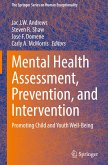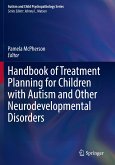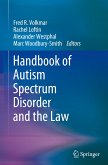This book examines the effects of social relations during primary school on children's neurobiology and pathways to maladaptation. It explores the ways in which after the transition to primary education children, supervised by teachers, need to function with their peers. The volume addresses issues affecting 10% to 20% of children who become poorly accepted or victimized by peers, receive low support by teachers or even have conflictual relations with teachers, and may perceive the classroom as a whole as nonsupportive.
Key areas of coverage include:
Detrimental effects of such social experiences, providing an overview of how such experiences affect children's neurobiology factors to understand why these children develop maladaptive outcomes.Manifestations of social relations, their complexity, interrelations, and pathways leading to the maladaptive outcomes.How genetic factors may evoke children's social environment and make them susceptible to its impact (e.g., findings on DNA methylation at both epigenome-wide level as well as on particular loci on candidate genes).Links between social environmental stressors and the psychophysiology of elementary school children and reviews both links with the autonomic nervous system as well as with the HPA-axis.The impact of social experiences on neurocognitive function development, decision making, and structural and functional brain development and discusses implications for research, prevention, and intervention.
Biosocial Interplay During Elementary School is a must-have resource for researchers, professors, and graduate students as well as clinicians and other professionals in clinical child, school, and developmental psychology, educational psychology/policy and politics, social work, neuroscience, public health, and all related disciplines.
Key areas of coverage include:
Detrimental effects of such social experiences, providing an overview of how such experiences affect children's neurobiology factors to understand why these children develop maladaptive outcomes.Manifestations of social relations, their complexity, interrelations, and pathways leading to the maladaptive outcomes.How genetic factors may evoke children's social environment and make them susceptible to its impact (e.g., findings on DNA methylation at both epigenome-wide level as well as on particular loci on candidate genes).Links between social environmental stressors and the psychophysiology of elementary school children and reviews both links with the autonomic nervous system as well as with the HPA-axis.The impact of social experiences on neurocognitive function development, decision making, and structural and functional brain development and discusses implications for research, prevention, and intervention.
Biosocial Interplay During Elementary School is a must-have resource for researchers, professors, and graduate students as well as clinicians and other professionals in clinical child, school, and developmental psychology, educational psychology/policy and politics, social work, neuroscience, public health, and all related disciplines.

